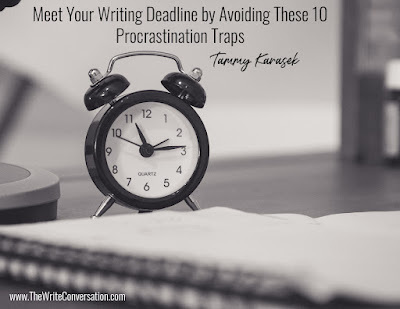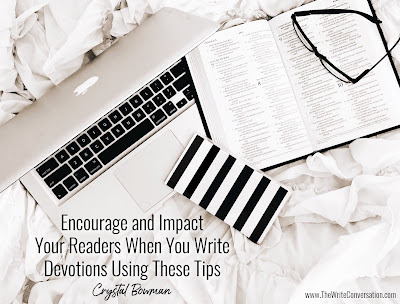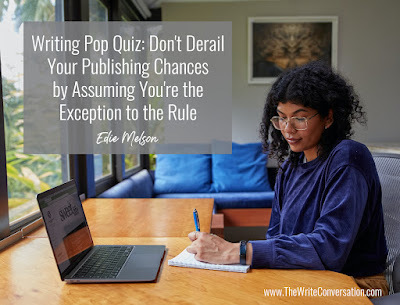Edie Melson's Blog, page 79
August 20, 2023
Have a Better Conference Experience Marketing Your Books By Using Networking Apps

by Karen Whiting @KarenHWhiting
I so enjoyed a first-time event this spring, and part of the reason came from the great conference event app. Another conference used an app but less effectively and still it added much more organization and marketing ability. Then I attended a few conferences with no apps and realized they fell short of my expectations because each one seemed less organized, and so much harder to connect and meet up with people I wanted to see. Check out conference apps and how to get the most from them.
What are conference apps?
A mobile event or conference app is a mobile application to share information and help everyone connect. This is more important the larger the event, especially if it’s over 100 attendees, and is more than one-day or has multiple, simultaneous workshops. There are both free and paid versions that the event planner can choose. Whova and GroupMe are two free ones that work well.
Using the App
 1. Once you join the app the event uses, check out the options provided. The front page of the app, called home, shows the options such as meetups, floor map, exhibitors, speakers, and more. There’s also a menu at the bottom where you can click to on attendees, agenda (or schedule), mail, and more.
1. Once you join the app the event uses, check out the options provided. The front page of the app, called home, shows the options such as meetups, floor map, exhibitors, speakers, and more. There’s also a menu at the bottom where you can click to on attendees, agenda (or schedule), mail, and more. Scheduling and reminders are easy with an event app. You can pull up the schedule and even get descriptions of workshops, and click to add it to your private schedule. It will automatically send a reminder and you can pull up your schedule to see what’s next that you plan to attend. The mail in the bottom menu, is for notes sent to you or sending notes to others.
2. Networking is easy as you can pull up the speakers and attendees, look at photos (if they entered one), and see a little about who they are. You can even search for someone or search by their company or other description (such as author). Go through the list before the conference to discover who will be attending and learn a little about the people. Message anyone you really want to meet.
3. The agenda is by the day, so for a 3-day conference you can bring up whatever day you want to check. Events for the entire group will be on the agenda and you choose to add others from choices. Having it all in one place makes it easier to get to the right places at the right times.
4. Community boards and Meet ups are places to share information or ask questions and find matches, like asking who writes fiction or poetry. Once magazine editor’s conference scheduled a meet up for all freelance authors and we had a blast getting to know one another. It was a great help for me as a first-timer at the conference. Because it was set up before the event started, we had the opportunity to connect, sometimes reconnect to friends, and ask questions about the conference from those who attended in the past.
Marketing and Networking Opportunities with the APP
 Being able to connect ahead of time and schedule meetings makes networking a breeze. Apps provide the opportunity to ask to meet and share why you want to meet. The person could agree or graciously decline (some only attend one day or have a full agenda). Some people are busy and don’t get on the app to reply, but even those had seen my messages without replying, greeted me when we sat near one another or met.
Being able to connect ahead of time and schedule meetings makes networking a breeze. Apps provide the opportunity to ask to meet and share why you want to meet. The person could agree or graciously decline (some only attend one day or have a full agenda). Some people are busy and don’t get on the app to reply, but even those had seen my messages without replying, greeted me when we sat near one another or met.As usual, don’t be pushy, but ask if they are willing to meet. At some conferences, appointments with editors and agents are handled by the director and those are ones with whom you do not ask to meet or have them save a place at a table. Follow the conference rules on such activities.
It can be great to plan a meal with authors in the same genre or from the same city. It’s also a way to get to know more about someone, such as asking someone what their company does and how they help authors or the focus of their ministry.
I wanted to match up with editors who wanted authors to write for their needs. This allowed me to do that and even get some writing assignments, as well as start connecting the editors to authors in my group with writers who could fill their needs.
Everything does not happen at once, but provides a method to start new relationships and build on established ones. I set up meetings with editors I knew from the past who had changed positions or magazines. I started new relationships and followed up to build on the connections.
 Follow Up Made Easier
Follow Up Made EasierAs the app is usually continued after the event, it’s a great way to follow up to schedule zoom calls, get email addresses, and continue conversations. If you forgot the name of someone, it’s easier to find them by searching the company name, position, or other attribute in the short bio.
The apps will often have an end date, so be sure to get any information before it ends, especially ones not gathered from exchanging business cards, such as sharing your email or phone and asking the best way to connect with someone.
TWEETABLEHave a Better Conference Experience Marketing Your Books By Using Networking Apps from @KarenHWhiting on @EdieMelson (Click to Tweet)
 Karen Whiting (WWW.KARENWHITING.COM) is an international speaker, former television host of Puppets on Parade, certified writing and marketing coach, and award-winning author of twenty-seven books for women, children, and families. Her newest book, The Gift of Bread: Recipes for the Heart and the Table reflects her passion for bread and growing up helping at her grandparent’s restaurant. Check out her newest book Growing a Mother’s Heart: Devotions of Faith, Hope, and Love from Mothers Past, Present, and Future. It's full of heartwarming and teary-eyed stories of moms.
Karen Whiting (WWW.KARENWHITING.COM) is an international speaker, former television host of Puppets on Parade, certified writing and marketing coach, and award-winning author of twenty-seven books for women, children, and families. Her newest book, The Gift of Bread: Recipes for the Heart and the Table reflects her passion for bread and growing up helping at her grandparent’s restaurant. Check out her newest book Growing a Mother’s Heart: Devotions of Faith, Hope, and Love from Mothers Past, Present, and Future. It's full of heartwarming and teary-eyed stories of moms.Karen has a heart to grow tomorrow’s wholesome families today. She has written more than eight hundred articles for more than sixty publications and loves to let creativity splash over the pages of what she writes. She writes for Crosswalk. Connect with Karen on Twitter @KarenHWhiting Pinterest KarenWhiting FB KarenHWhiting.
Published on August 20, 2023 22:00
August 19, 2023
Meet Your Writing Deadline by Avoiding These 10 Procrastination Traps

by Tammy Karasek @TickledPinkTam
I might have mastered a new skill I want to share with my fellow writers this month—the deadline procrastination dance.
This August I can now say I have a book contract. With that contract came a deadline set by the publisher. When I signed the contract, three months seemed far, far away. No problem. I puffed my chest out and knew I had this without any concern I wouldn’t make the deadline.
Part of May I would be away a week to teach, so I wrote out my list of what I wanted to accomplish for my book before August first. My deadline was August fifteenth, but I was confident I would slay that date.
June arrived and my Virtual Assistant and Launch work arrived and grew. I’ve got this, I boasted. I had everything scheduled in my day planner. I’m right on schedule.
Until the day that turned into four that no matter what I did, I felt as if I was on the proverbial treadmill. On a fast run, but I never arrived.
Then I panicked.
What if I can’t finish this book before my August first date. Or the real deadline of the fifteenth.
What if I’m not supposed to write. My idea was great, but what if I can’t finish the blasted book. Then, of course, the words now wouldn’t come. How could this be? The book is about what I do every week—manage launch teams. There I sat and wondered how would I write the instructions to do what I do in my sleep. Will they understand it? Will I miss a step and not catch it, and then they’re confused?
Rather than call on my writer friends for prayer, I decided I could handle it myself and I would do what needed to be done until I was finished with the book.
10 Procrastination Traps I Fell Into When Writing
1. With my fingers in a hover over my keyboard, I noticed a hang nail or two. And a chipped corner on my nail. If I go fix those, I’ll be able to concentrate and type. Yeah, that would do it. Off I went.
2. All done, I tossed the clippers and file back into the drawer. But I noticed the polishes had all fallen over. Better make sure none of them are leaking. Might as well go through them and pitch the old ones and stand the others back up. Nice.
3. Oh, I forgot I bought this color of pink, maybe if I polish them, I would have happy fingers flying over my keyboard. So, I do. Beautiful! But can’t type yet, they’re still wet.
4. Phone rang. Oh, friend I haven’t talked to in a while. Perfect, speaker phone while the nails dry. Then I’ll get back to work.
5. Great visit, she had lots to share. Longer talk than I should have. Now hubby’s hungry.
6. Go out to dinner, cause, ahem—nails freshly done.
7. Sigh, ate late, too tired to sit at my keyboard. Vow to get up early and hit the computer and crank out a great word count.
8. Early morning thunderstorm with a little internet outage off and on for most of the day. Uh oh.
9. Next day, a couple appointments out and they kill the day. But there’s tomorrow.
10. It’s now Saturday, beautiful day and the pull to be outside is strong. Now what?
How I Finally Finished Writing My BookI stopped and prayed. I asked God to sit with me while I wrote. I asked him to take away any distractions and give me the clarity to start typing on my keyboard and don’t stop until I can’t see any more for the day. I prayed for him to remove my perfectionist way to want this first draft to be more like the fifth.
Then the peace rose within me and I was reminded of the saying that goes “If God has called you to it, He will equip you for it.” And I felt a strong urge to grab my laptop and meet God out on my screened porch to enjoy the beautiful day and get my words down.
He answered. I wrote more than half the book that day.
I’m not kidding about that particular week’s procrastination. I’d love to know how you have managed to get your head back into your writing when the doubts and life’s circumstances seem to keep you from your keyboard? Please share below, I have interest for another book from a publisher—I may need to use your idea!
TWEETABLEMeet Your Writing Deadline by Avoiding These 10 Procrastination Traps from author @TickledPinkTam on @EdieMelson (Click to Tweet)
 Tammy Karasek uses humor and wit to bring joy and hope to every aspect in life. Her past, filled with bullying and criticism from family, drives her passion to encourage and inspire others and give them The Reason to smile. She’s gone from down and defeated to living a “Tickled Pink” life as she believes there’s always a giggle wanting to come out! A writer of Romance—with a splash of sass. She’s also The Launch Team Geek helping authors launch their books and also a Virtual Assistant for several best-selling authors. She is now under contract for her book on Launch Teams due to release Fall 2023. Her work was also published in a Divine Moments Compilation Book—Cool-inary Moments. She’s also the Social Media Manager for the Blue Ridge Mountains Christian Writers Conference, Founding President and current Vice-President of ACFW Upstate SC, and Founding President of Word Weavers Upstate SC. She’s a writing team member for The Write Conversation Blog, Novel Academy, MBT Monday Devotions, The Write Editing and more. Connect with Tammy at HTTPS://WWW.TAMMYKARASEK.COM.
Tammy Karasek uses humor and wit to bring joy and hope to every aspect in life. Her past, filled with bullying and criticism from family, drives her passion to encourage and inspire others and give them The Reason to smile. She’s gone from down and defeated to living a “Tickled Pink” life as she believes there’s always a giggle wanting to come out! A writer of Romance—with a splash of sass. She’s also The Launch Team Geek helping authors launch their books and also a Virtual Assistant for several best-selling authors. She is now under contract for her book on Launch Teams due to release Fall 2023. Her work was also published in a Divine Moments Compilation Book—Cool-inary Moments. She’s also the Social Media Manager for the Blue Ridge Mountains Christian Writers Conference, Founding President and current Vice-President of ACFW Upstate SC, and Founding President of Word Weavers Upstate SC. She’s a writing team member for The Write Conversation Blog, Novel Academy, MBT Monday Devotions, The Write Editing and more. Connect with Tammy at HTTPS://WWW.TAMMYKARASEK.COM.
Published on August 19, 2023 22:00
August 18, 2023
Have You Considered a Writing Retreat—4 Things I learned at a Writers Retreat

by Patty Smith Hall @PattySmithHall
A few weeks ago, I had the pleasure of attending my first writing retreat. For those of you who aren’t sure what that is exactly, it’s a chance to get away with other writers for a short period of time and simply write without the concerns of home and job.
But it’s more than that. During my week at the Outer Banks of North Carolina, I learned so much, it was almost like a mini writing conference!
4 Things I Learned at My Writers Retreat
1. Be PreparedOne of the great things about a writing retreat is actually getting to write! No dirty clothes calling to you from the laundry room, no boss peeking over your shoulder wondering what you’re doing. You just get to write!
But if you don’t know what you’re going to work on, you can waste valuable time. Before each of us left home, we’d each made our goals for the week and set our writing schedule. Some of us planned to get down as many words as possible, some did edits while still others needed to brainstorm scenes. The great thing about planning is we could lay out our goals to each other. For a week, we had live-in accountability partners to cheer and encourage when needed!
Being prepared also means bring those things that make your writing day easier. Need your office chair to be comfortable? Throw it in the back of your SUV! Can’t write without your favorite coffee cup? Pack it in your suitcase! This week is about getting down words, and if you need your Keurig to do that, then do it!
2. Be Ready to LearnI’m ashamed to admit it but I’m the world’s most unorganized writer. It’s not unusual to find little piles of books, articles and notebooks laying around our family room on end tables or the floor. The worst part is digging through material takes away from the time I could be blogging or marketing my books.
When I noticed that one of my housemates had a whiz-bang way of organizing her materials, I asked if she could show me more. For the next hour, she walked me through her system, even sending me templates to use that would make my writing go faster. Just a week later, I can tell a huge difference!
But that wasn’t the only thing I learned. Because we had such a wide variety of experience in our group, we shared about writing programs(I’m finally sold on Scrivener! And OneNote—WOW!) and marketing tools that work over dinner or during a break in writing. And because we were together for a week, we could get together one-on-one and talk about what works and doesn’t work, be it in our stories or our writing world, then brainstorm ideas to fix the problem.
3. Be Aware of Other’s Writing StylesWe had two distant groups in our house—the early morning crowd and those who wrote late into the night. The early morning group was generally up by seven and at their computers by eight. It wasn’t unusual that these guys were half-way through their word count by the time the night owls came out of their rooms.
Same thing goes for the night crew. There were many nights I’d peek out of my room to find one of the girls working out in the living room. These differences are reminders of how uniquely and wonderfully made we are. Be respectful of these differences and remember—just because someone goes to bed at nine doesn’t mean they don’t like you. It just means they’ve got to be up at seven to go to work!
4. Be Open-minded to New IdeasOne of the things I loved about the retreat was the location itself. The Outer Banks plays a part in the next book I’m writing so I had the chance to visit various areas where scenes might take place. But the more I learned about its rich history(did you know there’s a British cemetery there?)the more I found myself brainstorming ideas for other books that could be set there.
So get out and explore for a little while each day. Visit the nearby towns and villages. Talk to the locals. Tell them you’re a writer. You’ll be surprised what you might learn or who might be interested in helping you. I met a lovely lady who owned a small independent bookstore in a village not far from where we stayed who offered to host a book signing for me. A local historian gave me a list of names of people who might be helpful with the research on my next book. Put yourself out there. If you don’t feel comfortable going on your own, see if one of your housemates will go with you. Just think of all the brainstorming you can do in the car on your way!
Bottom LineBy the end of the week, everyone had signed up for next year’s retreat. We’d worked, made friends, even been silly at times(ask me about the Russian in the Sound.) I’d barely pulled out of the driveway before I was looking forward to next October!
TWEETABLEHave You Considered a Writing Retreat—4 Things I learned at a Writers Retreat from @PattySmithHall on @EdieMelson (Click to Tweet)
 Patty Smith Hall is a multi-published author, teacher and encourager to new writersjust starting their journey. A founding member of ACFW, she served on the national board and as a Genesis contest coordinator, and presided as president of her local chapter. As an acquisition editor for Winged Publications, she finds great joy in helping and encouraging others reach their publishing dreams. Married almost 40 years to Danny, she finds great joy in her family, friends, and her relationship with Jesus Christ. You can contact her at www.pattysmithhall.com.
Patty Smith Hall is a multi-published author, teacher and encourager to new writersjust starting their journey. A founding member of ACFW, she served on the national board and as a Genesis contest coordinator, and presided as president of her local chapter. As an acquisition editor for Winged Publications, she finds great joy in helping and encouraging others reach their publishing dreams. Married almost 40 years to Danny, she finds great joy in her family, friends, and her relationship with Jesus Christ. You can contact her at www.pattysmithhall.com.Featured Image: Photo by Toa Heftiba on Unsplash
Published on August 18, 2023 22:00
August 17, 2023
Encourage and Impact Your Readers When You Write Devotions Using These Tips

by Crystal Bowman
Opportunities for writing devotions are plentiful in the Christian market. Whether you’re writing an online devotion, contributing to a compilation devotional book, or writing an entire book of devotions, here are some basic things to keep in mind.
8 Things to Remember When Writing Devotions1. Know your target audience. This is true for all writing, but especially for writing devotions. Is your audience made up of young moms, women of all ages, both men and women, just men, teenagers, or kids? Some devotionals have a broader audience, whereas some have a narrower audience like devotions for teachers, dads, grandparents, and even golfers. The list is endless! And besides knowing your audience you need to be equipped to write for that audience. Since I do not play golf, that would not be a topic I would tackle! 2. Begin with something that will make the reader keep reading. A short personal or interesting story will set the stage for the message you want to convey. Stories are what we remember most—and Jesus often used stories in His teaching. This is your opportunity to grab the attention of your readers, so start strong. 3. Carefully weave in a verse or an excerpt from the Bible that ties in with your story. Be sure to understand the context of the scripture so it supports your message and doesn’t feel forced. For example, Luke 11:9 (NIV) Jesus says, “So I say to you: ask and it will be given to you; seek and you will find; knock and the door will be opened to you.” 4. If you keep reading, in verse 13 Jesus says, “. . . how much more will your Father in heaven give the Holy Spirit to those who ask him!” This passage is talking about asking for the Holy Spirit, not a beach house in Malibu. 5. Stick to one main topic. Devotions need to be focused on one main message for your readers. If you’re talking about God’s grace, then keep it about grace. If you’re writing about how God reveals Himself in creation, stay on that train of thought. Trying to pack too much into one devotion leaves the reader confused and waters down your message. 6. Avoid being preachy. I’ve had several people tell me I should have been a preacher and those comments were usually not meant to be a compliment! I have strong convictions and tend to voice my opinion freely. In the devotions we write, we don’t want to come across as preachy or judgmental. A tip that has helped me is to use the pronoun we rather than you when I want to encourage spiritual growth or conviction in my readers. For example, rather than saying: “When you worry too much, it can steal your joy,” say: “When we worry too much, it can steal our joy.” That minor change makes a big difference because you are including yourself in your message rather than directing it only toward the reader. 7. Conclude with hope and avoid making promises. Wrapping up your devotion takes some skill. Just like you want a strong beginning, you also want to end strong. The conclusion should only be a sentence or two, but it needs to drive the point of your message and leave the reader with a solid takeaway. Offer something that will give hope and encouragement to your readers, but don’t make empty promises. For example, rather than: “When you give your worries to God you will have a great day,” you could say: “Give your worries to God, and ask Him to give you peace and strength to get through this day.” 8. Remember to site Bible versions as you write. When you use a Bible verse or passage from Scripture, be sure to include the abbreviations for the version you are using so you don’t have to go back and look it up. Your editor will thank youLearning how to write a good devotion takes practice—just like any other writing we do. If you find opportunities to write devotions, it can be a steppingstone in your writing journey. More importantly, it’s an opportunity to help others grow in their faith and to know God more. And that’s a good reason to keep writing!
TWEETABLEEncourage and Impact Your Readers When You Write Devotions Using These Tips from Crystal Bowman on @EdieMelson (Click to Tweet)
 Crystal Bowman is an award-winning, bestselling author of more than 100 books for children and four nonfiction books for women. She also writes lyrics for children’s piano music and is a monthly contributor to Clubhouse Jr. Magazine. She loves going to schools to teach kids about poetry. She also speaks at MOPS (Mothers of Preschoolers) groups and teaches workshops at writers’ conferences. When she is not writing or speaking, she enjoys going for walks, working out at the gym, and eating ice cream. She and her husband live in Michigan and have seven huggable grandkids.
Crystal Bowman is an award-winning, bestselling author of more than 100 books for children and four nonfiction books for women. She also writes lyrics for children’s piano music and is a monthly contributor to Clubhouse Jr. Magazine. She loves going to schools to teach kids about poetry. She also speaks at MOPS (Mothers of Preschoolers) groups and teaches workshops at writers’ conferences. When she is not writing or speaking, she enjoys going for walks, working out at the gym, and eating ice cream. She and her husband live in Michigan and have seven huggable grandkids. WWW.CRYSTALBOWMAN.COMWWW.FACEBOOK.COM/CRYSTAL.BOWMANWWW.FACEBOOK.COM/CRYSTALJBOWMANWWW.INSTAGRAM.COM/CRYSTALBOWMANAUTHOR
Featured Image: Fallon Michael on Unsplash
Published on August 17, 2023 22:00
August 16, 2023
How to Recognize a Good Writing Rejection and Use It to Make Your Publishing Dreams Come True

by Edie Melson @EdieMelson
I’m amazed at the number of beginning writers I talk to who have no idea there’s such a thing as a good rejection. Those new to the industry have the idea that no is no and there’s nothing good about it.
Nothing could be further from the truth.
And if you spend much time in the industry you’ll discover there are varying levels of no. Today I’ll let you in on some positive rejections you may (hopefully) run into.
4 Good Writing Rejections to Celebrate
1. The Worst Good Rejection is One With a Personal Note. Let me assure you that editors do not have time to write personal notes to go with everything they reject. Any time an editor takes time to encourage a writer, especially one they aren’t going to publish, IT’S A BIG DEAL. And you should be encouraged that you’re doing something right.
2. Next is One that Turns You Down But ask if They Can Keep Your Name on File. Again, editors don’t ask that of every writer they come in contact with. Frequently editors reject a piece, not because it’s not well-written, but because they just can’t use it. They may have published something similar in the recent past or just not have a place for what you submitted. But if you’re asked if they can keep your name on file this means they like your writing. And that’s a GOOD THING!
3. Further up is One Where the Editor asks Permission to Pass the Piece or Your Name to another Department. Again, editors don’t put their reputations on the line for writers they don’t think can write. If an editor asks if they can pass your name along, say YES, and then CELEBRATE!
4. The BEST Good Rejection is One With Suggestions. Sometimes an editor will send you a rejection and ask you to make some changes and resubmit. This should cause you to do a happy dance. No editor is going to take the time to tell you what they want if they don’t really want you to resubmit it. When this happens, don’t just be encouraged. Sit yourself in front of the computer and make those changes—then RESUBMIT it!
These are just a few of the good rejections you can run into. And I don’t want anyone to pass up the chance to celebrate! Now it’s your turn, if you’ve had a good rejection, share the story in the comments section below.
Don’t forget to join the conversation!Blessings,Edie
TWEETABLEHow to Recognize a Good Writing Rejection and Use It to Make Your Publishing Dreams Come True - @EdieMelson (Click to Tweet)
 Edie Melson is a woman of faith with ink-stained fingers observing life through the lens of her camera. No matter whether she’s talking to writers, entrepreneurs, or readers, her first advice is always “Find your voice, live your story.” As an author, blogger, and speaker she’s encouraged and challenged audiences across the country and around the world. Her numerous books reflect her passion to help others develop the strength of their God-given gifts and apply them to their lives.Connect with her on her WEBSITE, through FACEBOOK, TWITTER and on INSTAGRAM.
Edie Melson is a woman of faith with ink-stained fingers observing life through the lens of her camera. No matter whether she’s talking to writers, entrepreneurs, or readers, her first advice is always “Find your voice, live your story.” As an author, blogger, and speaker she’s encouraged and challenged audiences across the country and around the world. Her numerous books reflect her passion to help others develop the strength of their God-given gifts and apply them to their lives.Connect with her on her WEBSITE, through FACEBOOK, TWITTER and on INSTAGRAM.Featured Image: Photo by Adi Goldstein on Unsplash
Published on August 16, 2023 22:00
August 15, 2023
Are You Dancing with God as You Write?
Edie here. Today I want to celebrate our columnist, Katy Kauffman! This is her 100th post with The Write Conversation. Her faithfulness has blessed so many of us—through this blog and especially through her work on
Lighthouse Bible Studies
! Please join me in giving her a shout out and thanks!

by Katy Kauffman @KatyKauffman28
He always knew what to do. Her eyes followed the dance instructor’s every move. On the periphery of the dance floor, she swayed to the rhythm of the music as he guided dancer after dancer across the ballroom. Waltz, foxtrot, swing dance. The instructor knew every style, and he became the perfect partner every dancer needed. Finally she found a teacher she could learn from and trust. Finally her dream of dancing would come true. Then he came her way.
Holding out his hand, he beckoned her to join him. One step, two, and then three. She learned to follow his lead. Hesitant steps became sure-footed as she adjusted to his pace. She understood how to anticipate their change of direction as he turned her hand in his, this way and that. At last. She was getting it. At last. She was dancing.
Dear writer, you’re the dancer, and God is the perfect instructor. Writing is a partnership between us and God. He guides us to know what to write about and how. He beckons us to the dance floor and trains us to follow His lead. One word, two, and then three. He guides us as ideas turn into sentences and paragraphs. Our chapters may be shaky at first, but with time and practice, we gain confidence because we’re listening to His voice and following His direction. He knows how to write every genre, and He does it perfectly. He entrusts us with a message to share and builds within us the right heart to share it.
So how can we dance with God as we write about His Word?
3 Ways to Follow God’s Lead as We Write
1. Put God at the center of everything we do.
We have a lot to do as writers—writing, editing, blogging, platform building, networking, and more. It can be hard to manage all of the “dances.” But if we put God at the center of every project, we can listen for His direction and “watch” Him closely, as He guides us. He knows what to focus on, when, and how much to do at a time. He knows what needs to be written next and how to go about it. Keeping Him at the center of our focus overcomes doubt and fear, and we develop the boldness and humility to write well with Him.
2. Take enough time to study Scripture with God and apply it to our lives.
At one point in my writing journey, I used my quiet time for my next writing assignment. I wanted to hear from God for each article or blog post, and that happens best during my personal time with Him. But I realized I needed some time for just me and Him. I craved more Bible study time with Him and making application for my own life and praying over it.
Sometimes our pace is like a waltz, and at other times, it’s a foxtrot. But always, we need special time with God in order to stay connected to Him. Just Him and us time. Our best insights come from time spent studying Scripture with its incredible Author. The insights we gain that way, along with daily experience with God, become the wellspring from which “music” in our writing flows. Time with God trains us to dance with Him through article after article and chapter after chapter.
3. Practice what God shows us.
Just as precious time spent with God prepares us to write—to dance—with Him, living out what we learn also prepares us. We understand the tug of war between God’s way and our own way, that precarious footwork needed to stay on God’s path. We depend on His help to practice what He is teaching us, and receive a behind-the-scenes look of how godliness grows. The more we practice what Scripture shares, the stronger our connection to our Partner grows, and the more we’ll know exactly what to write and how.
Which of the three ways above do you think is the hardest for the Christian writer to maintain? Tell us in the comments, and may God bless each “dance” as you follow His lead.
TWEETABLEAre You Dancing with God as You Write? Insight from @KatyKauffman28 on @EdieMelson (Click to Tweet)
 Katy Kauffman is an award-winning author, an editor of Refresh Bible Study Magazine, and a co-founder of LIGHTHOUSE BIBLE STUDIES. She loves connecting with writers and working alongside them in compilations, such as Feed Your Soul with the Word of God, Collection 1 which is a 2020 Selah Awards finalist. She also enjoys encouraging writers and giving writing tips in her monthly writers’ newsletter called THE LIGHTHOUSE CONNECTION.
Katy Kauffman is an award-winning author, an editor of Refresh Bible Study Magazine, and a co-founder of LIGHTHOUSE BIBLE STUDIES. She loves connecting with writers and working alongside them in compilations, such as Feed Your Soul with the Word of God, Collection 1 which is a 2020 Selah Awards finalist. She also enjoys encouraging writers and giving writing tips in her monthly writers’ newsletter called THE LIGHTHOUSE CONNECTION.
In addition to online magazines, Katy’s writing can be found at CBN.COM, thoughts-about-God.com, and three blogs on writing. She loves to spend time with family and friends, create art and make crafts with her group MY ARTSY TRIBE, and tend the garden in the morning sun. She makes her home in a cozy suburb of Atlanta, Georgia. Connect with her on FACEBOOK and TWITTER.
Featured Image: Photo by William Farlow on Unsplash

by Katy Kauffman @KatyKauffman28
He always knew what to do. Her eyes followed the dance instructor’s every move. On the periphery of the dance floor, she swayed to the rhythm of the music as he guided dancer after dancer across the ballroom. Waltz, foxtrot, swing dance. The instructor knew every style, and he became the perfect partner every dancer needed. Finally she found a teacher she could learn from and trust. Finally her dream of dancing would come true. Then he came her way.
Holding out his hand, he beckoned her to join him. One step, two, and then three. She learned to follow his lead. Hesitant steps became sure-footed as she adjusted to his pace. She understood how to anticipate their change of direction as he turned her hand in his, this way and that. At last. She was getting it. At last. She was dancing.
Dear writer, you’re the dancer, and God is the perfect instructor. Writing is a partnership between us and God. He guides us to know what to write about and how. He beckons us to the dance floor and trains us to follow His lead. One word, two, and then three. He guides us as ideas turn into sentences and paragraphs. Our chapters may be shaky at first, but with time and practice, we gain confidence because we’re listening to His voice and following His direction. He knows how to write every genre, and He does it perfectly. He entrusts us with a message to share and builds within us the right heart to share it.
So how can we dance with God as we write about His Word?
3 Ways to Follow God’s Lead as We Write
1. Put God at the center of everything we do.
We have a lot to do as writers—writing, editing, blogging, platform building, networking, and more. It can be hard to manage all of the “dances.” But if we put God at the center of every project, we can listen for His direction and “watch” Him closely, as He guides us. He knows what to focus on, when, and how much to do at a time. He knows what needs to be written next and how to go about it. Keeping Him at the center of our focus overcomes doubt and fear, and we develop the boldness and humility to write well with Him.
2. Take enough time to study Scripture with God and apply it to our lives.
At one point in my writing journey, I used my quiet time for my next writing assignment. I wanted to hear from God for each article or blog post, and that happens best during my personal time with Him. But I realized I needed some time for just me and Him. I craved more Bible study time with Him and making application for my own life and praying over it.
Sometimes our pace is like a waltz, and at other times, it’s a foxtrot. But always, we need special time with God in order to stay connected to Him. Just Him and us time. Our best insights come from time spent studying Scripture with its incredible Author. The insights we gain that way, along with daily experience with God, become the wellspring from which “music” in our writing flows. Time with God trains us to dance with Him through article after article and chapter after chapter.
3. Practice what God shows us.
Just as precious time spent with God prepares us to write—to dance—with Him, living out what we learn also prepares us. We understand the tug of war between God’s way and our own way, that precarious footwork needed to stay on God’s path. We depend on His help to practice what He is teaching us, and receive a behind-the-scenes look of how godliness grows. The more we practice what Scripture shares, the stronger our connection to our Partner grows, and the more we’ll know exactly what to write and how.
Which of the three ways above do you think is the hardest for the Christian writer to maintain? Tell us in the comments, and may God bless each “dance” as you follow His lead.
TWEETABLEAre You Dancing with God as You Write? Insight from @KatyKauffman28 on @EdieMelson (Click to Tweet)
 Katy Kauffman is an award-winning author, an editor of Refresh Bible Study Magazine, and a co-founder of LIGHTHOUSE BIBLE STUDIES. She loves connecting with writers and working alongside them in compilations, such as Feed Your Soul with the Word of God, Collection 1 which is a 2020 Selah Awards finalist. She also enjoys encouraging writers and giving writing tips in her monthly writers’ newsletter called THE LIGHTHOUSE CONNECTION.
Katy Kauffman is an award-winning author, an editor of Refresh Bible Study Magazine, and a co-founder of LIGHTHOUSE BIBLE STUDIES. She loves connecting with writers and working alongside them in compilations, such as Feed Your Soul with the Word of God, Collection 1 which is a 2020 Selah Awards finalist. She also enjoys encouraging writers and giving writing tips in her monthly writers’ newsletter called THE LIGHTHOUSE CONNECTION.In addition to online magazines, Katy’s writing can be found at CBN.COM, thoughts-about-God.com, and three blogs on writing. She loves to spend time with family and friends, create art and make crafts with her group MY ARTSY TRIBE, and tend the garden in the morning sun. She makes her home in a cozy suburb of Atlanta, Georgia. Connect with her on FACEBOOK and TWITTER.
Featured Image: Photo by William Farlow on Unsplash
Published on August 15, 2023 22:00
August 14, 2023
Writing Pop Quiz: Don't Derail Your Publishing Chances by Assuming You're the Exception to the Rule

by Edie Melson @EdieMelson
Publishing is a complicated business—whether you’re writing fiction, how-to books, articles, or anything else. There’s a huge learning curve, and lots of unwritten rules. And there are exceptions. But if you’re serious about a career in writing, you need to quit looking at yourself as one of them.
I know it sounds harsh, but you are slowing down your forward momentum and only hurting yourself. I should know, I’ve been there. And if you think you aren’t playing these kinds of games, take the short quiz below, and see how you score.
Writing Pop Quiz
Scenario #1The submission guidelines on the website of an agent/publishing house says you must query first before sending your manuscript.a. You follow the guidelines and query first.b. You write a good query letter, but you also attach a sample chapter.c. You know when they read your manuscript they’ll be glad they skipped ahead so you just send them a quick note and attach your entire manuscript.
Scenario #2You’re at a writer’s conference and during the introduction time, your dream publisher announces they’re not accepting the genre you write. You already have an appointment with the editor so you:a. Let the editor know what’s happened and give up your appointment to someone else.b. Pull a no-show, there’s no point to even sit down.c. Keep the appointment and spend the entire 15 minutes explaining why they need to start a line of that genre with your book, because it’s just so good.
Scenario #3You’ve had an article accepted from a magazine on spec (means they still have the option to not buy it if they don’t like the finished product). The editor contacts you and gives you a word count of 800 words. You finish the article, but it comes in at 1000 words. You decide to:a. Keep working until you cut the extra 200 words.b. Email the editor and ask for him to up the word count.c. Send the article as is. It’s the editor’s job to edit. Let him earn his money.
Scenario #4You sent a requested proposal to an editor. They told you to expect to hear back within three months. It’s been three months and two days. You sent an email asking for an update and don’t get a response. You then:a. Wait two weeks before emailing again.b. Begin firing hourly emails to the editor until they respond.c. Pick up the phone and call the publishing house.
Scenario #5You have a genius idea for a book/article. You work like mad to finish it in time to pitch it at a conference. The editor agrees and asks you to send it in for her to look at. You give it a quick once over and notice a few typos so you:a. Take a few extra days to make sure it’s as clean and well-written as possible.b. Include a cover letter explaining you new the editor was in a hurry to get this and apologize for any possible mistakes.c. Send it anyway. Any editor with her salt will be able to tell how good it is.
Scoring:For every A answer, Give yourself 1 point.For every B answer, give yourself 2 points.For every C answer, give yourself 3 points.
5-7 pointsYou’re in a great place. It’s just a matter of time before you’re on your way.
8-11 pointsYou’re not quite as deluded but you definitely need a reality check. Start following the guidelines, they’re there for a reason.
12-15 pointsYou definitely live in a dream world. You think of yourself as the exception and without being an exception you’ll never get ahead.
I’m curious. How have you seen others act as exceptions rather than following the rules? Be sure to leave your thoughts in the comments section below.
Don’t forget to join the conversation!Blessings,Edie
TWEETABLEWriting Pop Quiz: Don't Derail Your Publishing Chances by Assuming You're the Exception to the Rule from @EdieMelson (Click to Tweet)
 Edie Melson is a woman of faith with ink-stained fingers observing life through the lens of her camera. No matter whether she’s talking to writers, entrepreneurs, or readers, her first advice is always “Find your voice, live your story.” As an author, blogger, and speaker she’s encouraged and challenged audiences across the country and around the world. Her numerous books reflect her passion to help others develop the strength of their God-given gifts and apply them to their lives.Connect with her on her website, through Facebook, Twitter and on Instagram.
Edie Melson is a woman of faith with ink-stained fingers observing life through the lens of her camera. No matter whether she’s talking to writers, entrepreneurs, or readers, her first advice is always “Find your voice, live your story.” As an author, blogger, and speaker she’s encouraged and challenged audiences across the country and around the world. Her numerous books reflect her passion to help others develop the strength of their God-given gifts and apply them to their lives.Connect with her on her website, through Facebook, Twitter and on Instagram.Featured Image: Photo by Sweet Life on Unsplash
Published on August 14, 2023 22:00
August 13, 2023
Writers Need Mental Toughness—How to Develop a Just Do It Writing Attitude

by Larry J. Leech II @LarryJLeechII
Just Do It.
Three of the most powerful brand words ever used in advertising.
Those words made famous by a world-renowned apparel and sports equipment company have motivated millions of people to get off their butts and take action, whatever “it” might be.
Walking. Running. Lifting. Golfing. Sounds easy, doesn’t it? At least the ads featuring well-defined athletes can make a person feel that way.
Pushing your body to the limit—no pain, no gain, right?—is the obvious command of those three words. But those three words invoke more than something physical. Oh, so much more than putting on a pair of sneakers and hitting the pavement or pulling on a pair of shorts and T-shirt and heading to the gym.
On television, and maybe in the gym or on the running trail, how often have you seen an athlete with that “look” in their eyes? The look comes from mental preparation that they will not be denied in their effort to accomplish their “it.”
Mental toughness and mental preparedness are an unspoken important key to Just Do It.
Marathon runners talk about pushing through a wall late in the race. Other athletes talk about the mental aspect of success—envisioning making the putt on No. 18 to win the Masters or completing a last-second touchdown pass to win a game.
The mental preparation of an athlete often leads to great success. Being mentally prepared can lead to great success for us writers as well. As nice as it might be, we can’t Just Do It when we sit to write. Okay, pantsers feel free to prove me wrong here. Being mentally prepared with a plan produces the best results.
Wherever I have lived, I only work in my “office.” I never venture out to work at the dining room table, or onto the couch in the living room with the television on, or propped up in bed with my computer on my lap. This has been my choice. I didn’t want to turn most of my house into an office.
Because, when I walk into my office, I shift into work mode. My brain knows, thanks to repetition and routine, that I am in that room to work. I forget about the dirty dishes in the sink, swiffering the floor, or clothes that needed folded. The mental part of this exercise moves me from desire to productivity.
I also have a “branch office,” an internationally known coffee house that serves hot beverages in green and white cups. My routine there—setting my drink in the same spot near my mousepad, putting in my earbuds, and finding music on YouTube—flips my brain into work mode.
This mental shift stimulates focus and productivity. And, in the end, happiness.
Completing a writing session in which you hit your target of 1,000 words or 500 words or 5 pages or 10 pages, should bring a sense of accomplishment. Or maybe the goal was to write a blog, or update your website, or connect with readers on social media.
Whatever “it” was your goal, prepare mentally to maximize your efforts. And then Just Do It.
TWEETABLEWriters Need Mental Toughness—How to Develop a Just Do It Writing Attitude from @LarryJLeechII on @EdieMelson (Click to Tweet)
 Editor-in-Chief at Bold Vision Books and writing coach of award-winning authors, Larry J. Leech II has spent more than forty years writing and editing. He started his career as a sportswriter in southwestern Pennsylvania where he covered prep, college, and pro sports, including the Pittsburgh Pirates and Steelers.
Editor-in-Chief at Bold Vision Books and writing coach of award-winning authors, Larry J. Leech II has spent more than forty years writing and editing. He started his career as a sportswriter in southwestern Pennsylvania where he covered prep, college, and pro sports, including the Pittsburgh Pirates and Steelers. In 2004, after 2,300 published articles, Larry moved into the book publishing industry. Since that time, he has ghostwritten 30 books, edited more than 400 manuscripts, and coached hundreds of authors through the writing and publication process. You can find him online on Twitter, Facebook, and Instagram.
Featured Image: Photo by Beth Jnr on Unsplash
Published on August 13, 2023 22:00
August 12, 2023
When Life and Writing Fall Apart

by Martin Wiles @LinesFromGod
Life’s falling apart episodes provide plenty of food for our writing fodder, but let’s be honest . . . who really enjoys it when life and writing fall apart?
Carlton* appeared to have it all—a good job, a loving wife, great kids. Everything seemed to work in his favor, until he and his family moved to a different city near a relative who loved drugs. One day, this relative offered Carlton a little “feel-good.” In a moment of weakness, Carlton took it. He was hooked . . . immediately.
After that, things went downhill quickly. Carlton couldn’t get enough of his new friend. He loved him so much that he spent his entire paycheck to get more time with him, leaving his family with no money for bills or groceries. His wife worked part-time, but her income only made a dent in the household expenses.
Even Carlton’s paycheck couldn’t cover his desire for more. So, when his need outweighed his conscience, he robbed two stores. The police quickly apprehended and incarcerated him.
Carlton’s wife and kids loved him through his up and downs—and jail time. He eventually reformed . . . somewhat . . . but now and then found himself returning to his old friend. Unfortunately, Carlton’s life ended tragically one night when he ran off the road and wrecked. I performed his funeral and watched his wife and family grieve over his untimely death. Life had fallen apart years ago for them, and, like Humpty Dumpty, it never came back together.
I had known Carlton for many years before his addiction. He was a good guy who allowed an addictive substance to ruin his and his family’s lives. But I’m no different. Nor was Paul. He struggled to do the right thing, but sometimes, even when he did, life still fell apart.
“I want to do what is good, but I don’t. I don’t want to do what is wrong, but I do it anyway” (Romans 7:19 NLT).
Because of our sinful nature, we are capable of unimaginable things. God understands but doesn’t excuse our actions. But sin affects our world also, meaning things will occasionally fall apart even when we’ve done the right thing.
If we’ve messed up, confession is in order. Then, we must forgive ourselves to get on with life and God’s plan. If life has fallen apart through no fault of our own, we must walk by faith and trust God to bring good from evil. And when we suffer from others’ bad decisions, we must forgive.
So where does that leave us as writers? Well, sometimes we mess up, and sometimes others mess us up. At other times, it is no one’s fault. We just live in a sin-cursed world.
To be sure, God has a plan for our writing life—and it won’t be the same plan as He has for anyone else. We’ll know success . . . and failure. Occasionally, things won’t work out, although we’ve jumped through all the right hoops. We won’t get the contract, realize our anticipated book sales, be asked to speak at the conference, get the scholarship, win the contest, or even have our name and bio attached to our article. To make matters worse, rarely, if ever, will God reveal why.
The good news? Our writing makes a difference—despite opposition, failures, and southbound life events. When our life and writing fall apart—periodically at the same time—we don’t have to fall apart with it. God still controls, and that’s the best news.
How can you incorporate the difficult times into your writing so that you don’t fall apart when everything else does?
*Name changed to protect privacy.
TWEETABLEWhen Life and Writing Fall Apart, insight from author Martin Wiles (@LinesFromGod) on @EdieMelson (Click to Tweet)
 Martin Wiles is the founder of Love Lines from God (WWW.LOVELINESFROMGOD.COM) and serves as Managing Editor for Christian Devotions and Directing Editor for VineWords. He has authored six books and has been published in numerous publications. His most recent book, DON'T JUST LIVE...REALLY LIVE, debuted in October of 2021. He is a freelance editor, English teacher, author, and pastor.
Martin Wiles is the founder of Love Lines from God (WWW.LOVELINESFROMGOD.COM) and serves as Managing Editor for Christian Devotions and Directing Editor for VineWords. He has authored six books and has been published in numerous publications. His most recent book, DON'T JUST LIVE...REALLY LIVE, debuted in October of 2021. He is a freelance editor, English teacher, author, and pastor.Featured Image: Photo by Lucian Novosel on Unsplash
Published on August 12, 2023 22:00
August 11, 2023
A Christmas Reminder for Writers

by Beth K. Vogt @BethVogt
You’re reading this blog post in early August, which means some of us are still wondering, “Where did July go?”
I wrote this blog post in July, during all the “Christmas in July” falalalala people celebrate. Store sales. Car sales. Book giveaways. (Maybe you participated in one.)
Christmas in July made me realize a mid-year Christmas reminder is a good thing.
So here’s my reminder to you, writer friends.
Right now, as you’re reading this, Christmas is four months away. This is said for perspective, not to cause panic.
Heaven proclaimed that Jesus is Emmanuel, God with us. We celebrate Christmas in December—deck the halls, sing the songs, bake the family recipes, give the gifts but the reason for the season is here with us all year long. Every single day, week, and month of the year.
Some of you may be thinking, “Yes, Beth, I know that.”
But do we live like it? Do we celebrate the truth of Christmas all year long? Do we allow the eternal truth to change us? And believe me, as I type these words, I’m challenging myself with these questions. Do my actions, my words, both spoken and written, reflect the miraculous truth that Jesus is Emmanuel, God with us?
Here’s an action point to consider: Go get one Christmas ornament or a small nativity scene from among your collection. Yes, you’ll have to get into your Christmas boxes a few months early. Put the ornament or scene somewhere where you will see it for the next few months. Let it remind you of Emmanuel, God with us, as you go about your day, as you reflect Him to the world through your actions and words, both spoken and written.
NOTE: I first learned this action point from a pastor, who suggested keeping out a nativity scene all year round as a reminder of the truth of Christmas. I amended it for the purpose of this column.
No matter what you do today, may the Truth of Christmas refill your heart with hope and infuse your writing with purpose.
TWEETABLEA Christmas Reminder for Writers from author @BethVogt on @EdieMelson (Click to Tweet)
 Beth K. Vogt believes God’s best often waits behind the doors marked “Never.” She’s authored 15 novels and novellas, both contemporary romance and women’s fiction. Beth is a Christy Award winner, an ACFW Carol Award winner, and a RITA® finalist. Her newest contemporary romance novel, Dedicated to the One I Love, released June 20, 2023. Her novel Things I Never Told You, book one in her Thatcher Sisters Series by Tyndale House Publishers, won the 2019 AWSA Golden Scroll Award for Contemporary Novel of the Year. An established magazine writer and former editor of the leadership magazine for MOPS International, Beth blogs for Learn How to Write a Novel and The Write Conversation and also enjoys speaking to writers group and mentoring other writers. She lives in Colorado with her husband Rob, who has adjusted to discussing the lives of imaginary people. Connect with Beth at bethvogt.com.
Beth K. Vogt believes God’s best often waits behind the doors marked “Never.” She’s authored 15 novels and novellas, both contemporary romance and women’s fiction. Beth is a Christy Award winner, an ACFW Carol Award winner, and a RITA® finalist. Her newest contemporary romance novel, Dedicated to the One I Love, released June 20, 2023. Her novel Things I Never Told You, book one in her Thatcher Sisters Series by Tyndale House Publishers, won the 2019 AWSA Golden Scroll Award for Contemporary Novel of the Year. An established magazine writer and former editor of the leadership magazine for MOPS International, Beth blogs for Learn How to Write a Novel and The Write Conversation and also enjoys speaking to writers group and mentoring other writers. She lives in Colorado with her husband Rob, who has adjusted to discussing the lives of imaginary people. Connect with Beth at bethvogt.com.Featured Image: Photo by Joshua Mayo on Unsplash
Published on August 11, 2023 22:00



